Unusual Family Gatherings
University Project— 2022
What happens, if we treat nature the same loving way, as we treat our family?
The zine series deals with the phenomenon of “species loneliness”. Elements like water and soil, as well as other non-human beings, are looked at through anthropocentric glasses and regarded as mere resources and objects. Indigenous tribes all over the world live according to a different understanding of nature. For them, mountains are like brothers and plants remind them of sisters. What happens, if we treat nature the same loving way, as we treat our family?
I created three zines, and each of them deals with a linked urban environmental topic in connection to the indigenous understanding of nature.
The booklets contain a general opening, a specific introduction to the natural element, an identification of the different needs of humans and nature in the city, an excursus and hands-on relationship tips. When unfolding the Zine, there is one big illustration inside. It can be regarded as a poster. The posters of all three zines result in one city scene. For the reproduction, I used the Riso-Printer of my university.
If you're interested in getting a copy for yourself, send me a request per Mail.

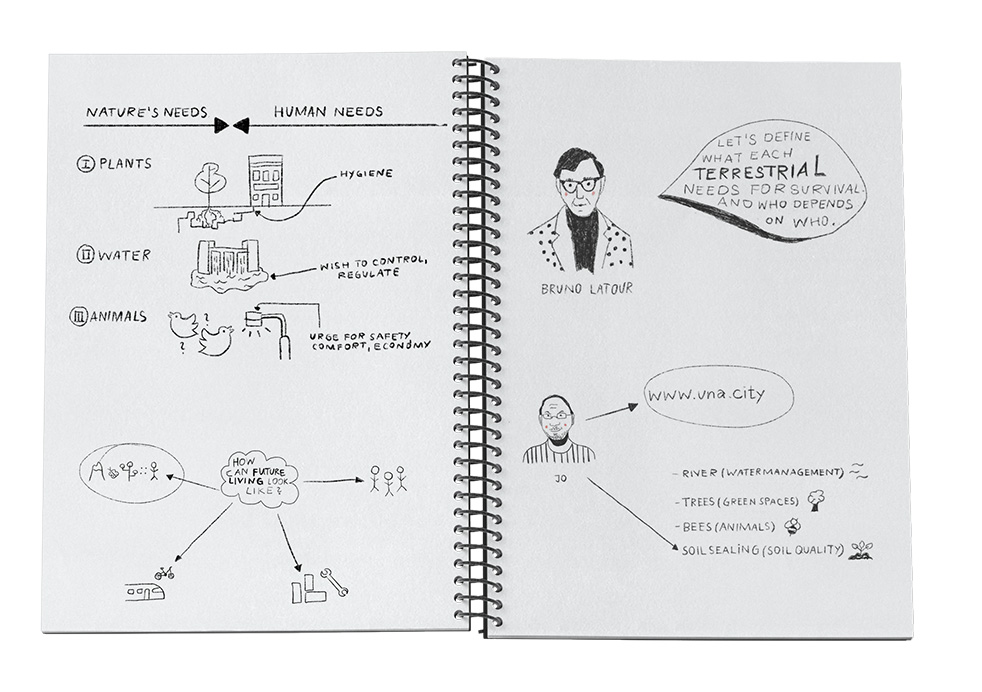
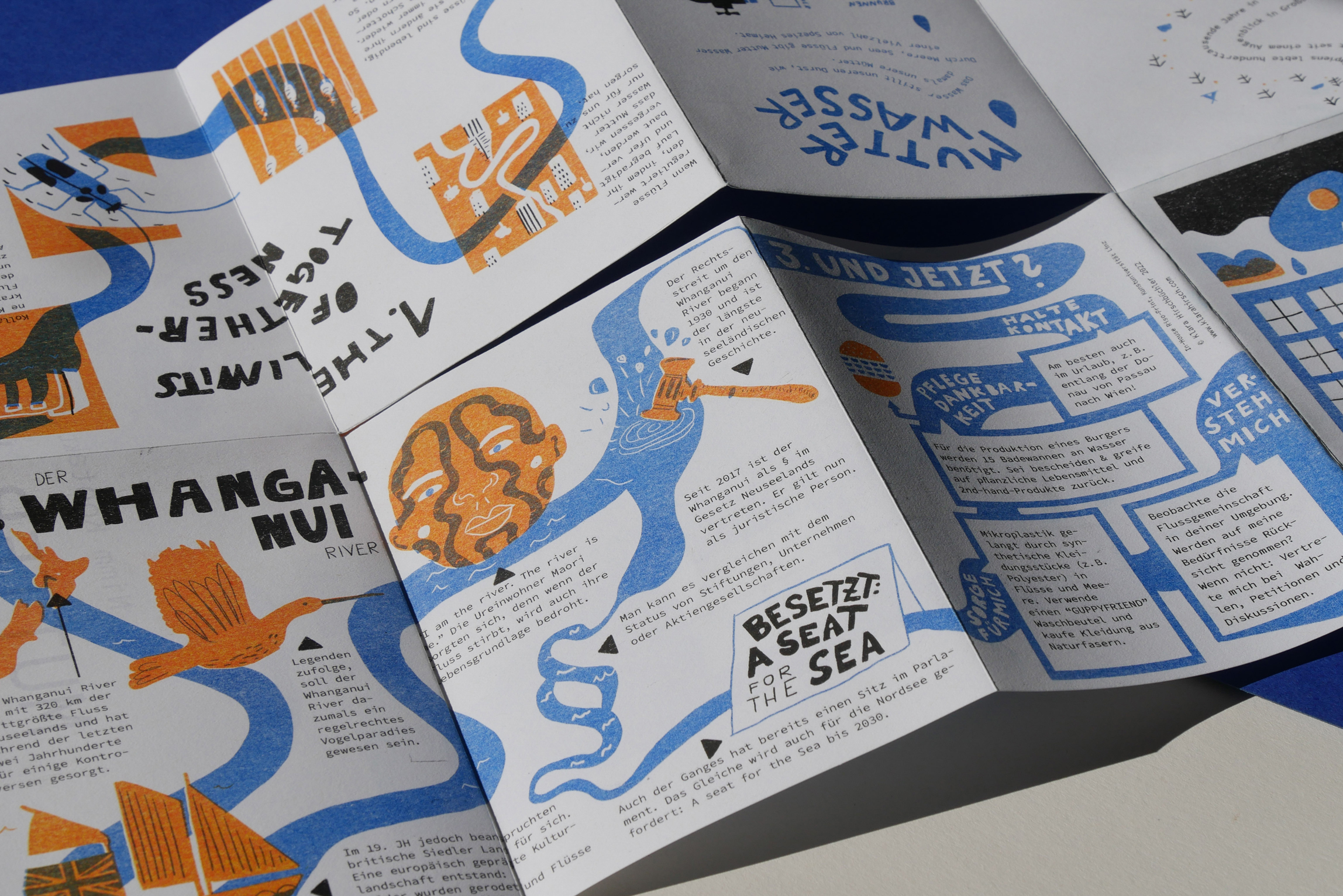
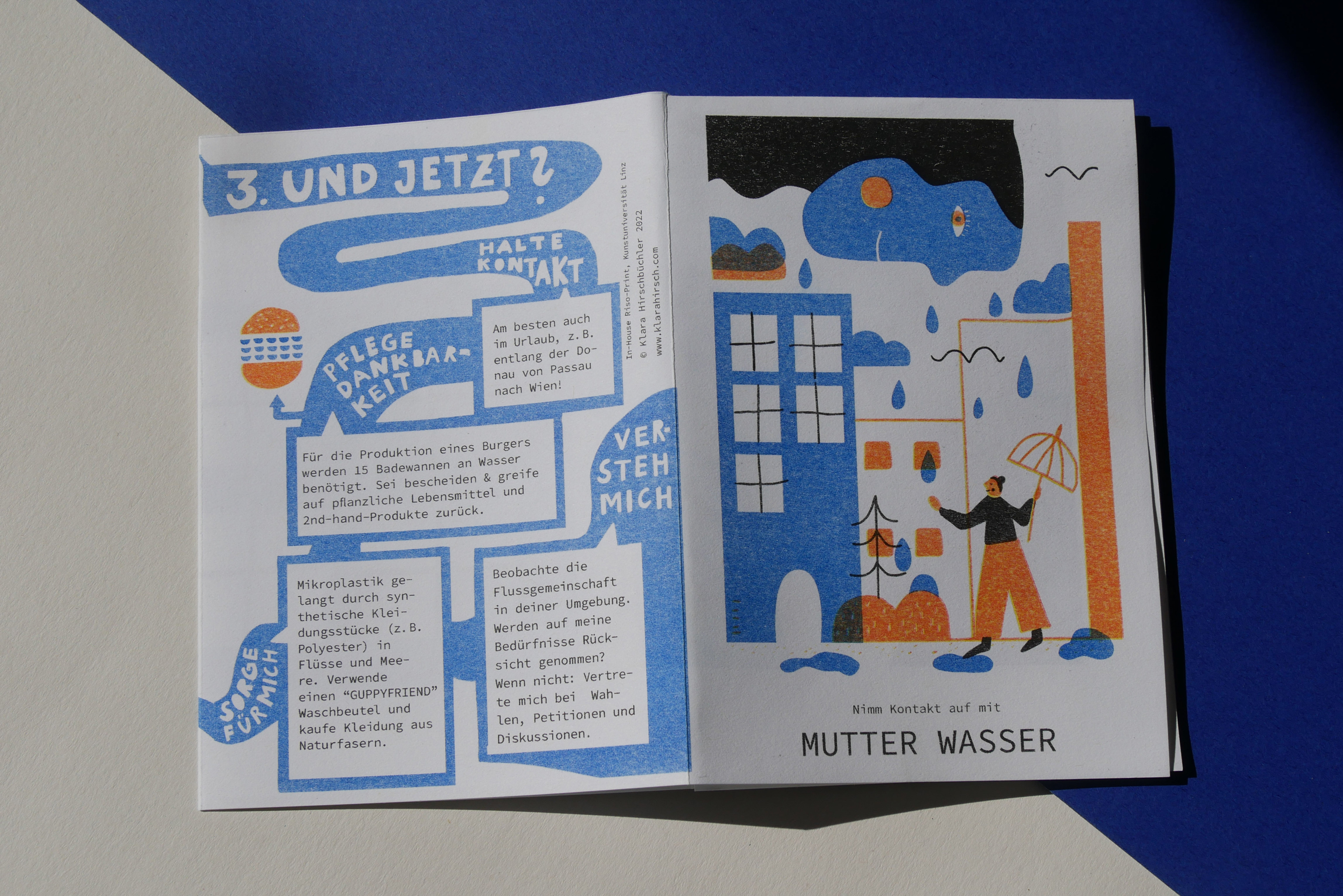
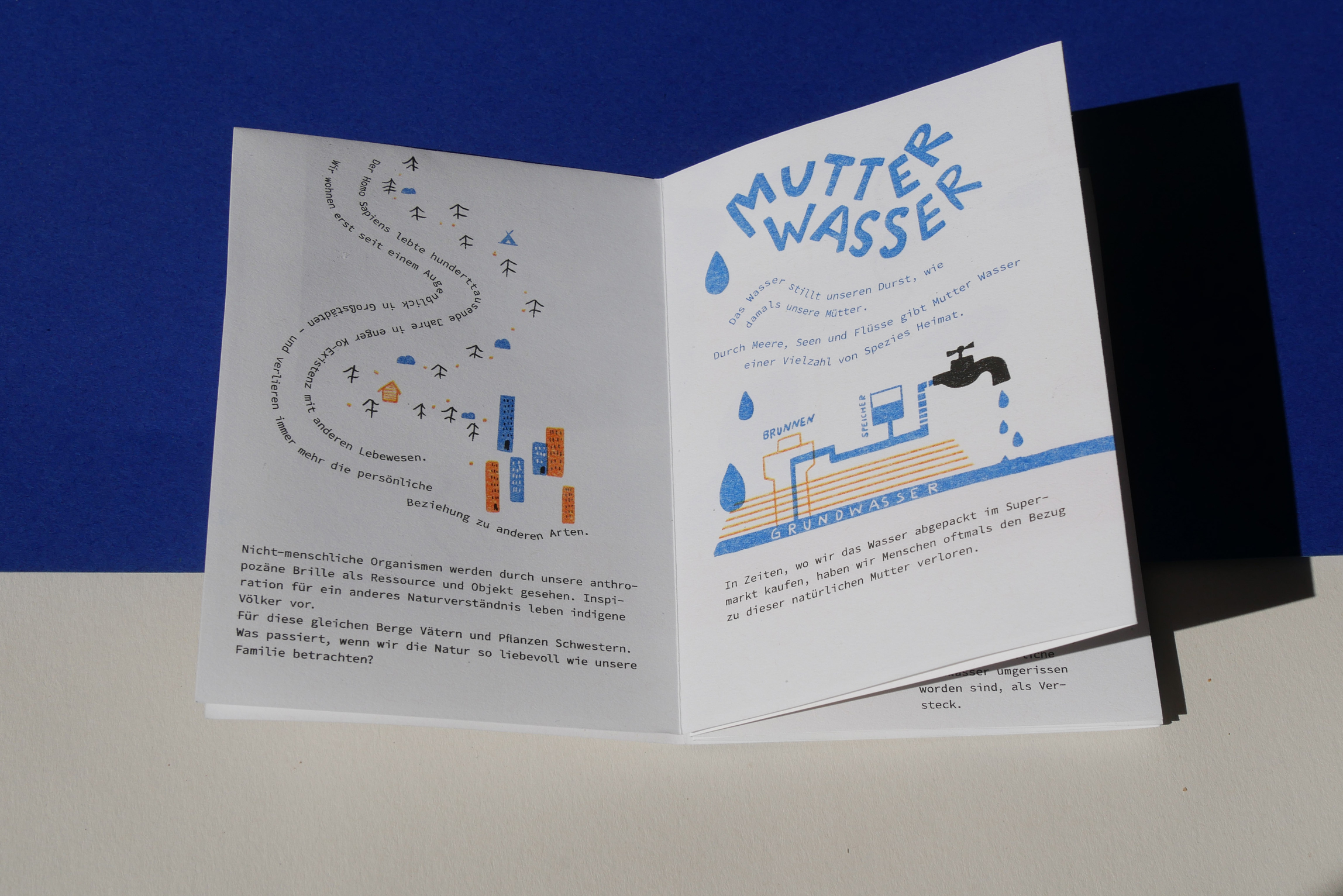
The first element I looked into is Water, which, as once our mother, quenches our thirst. For traditional tribes like the Waos in Ecuador, it is obvious that if they pollute their river, they will eventually pollute their drinking water. For us, living in big cities and conveniently taking our water out of the tap or bottled up from the supermarket, this connection doesn’t come too natural to us.
The zine also deals with the legal conflict about the Whanganui river, which eventually led to the river getting the same legal rights in front of the court as humans. The idea behind it is that everyone can take the role of a guardian for nature and sue in their name. You can compare it with minors, who also need a guardian in front of the court.
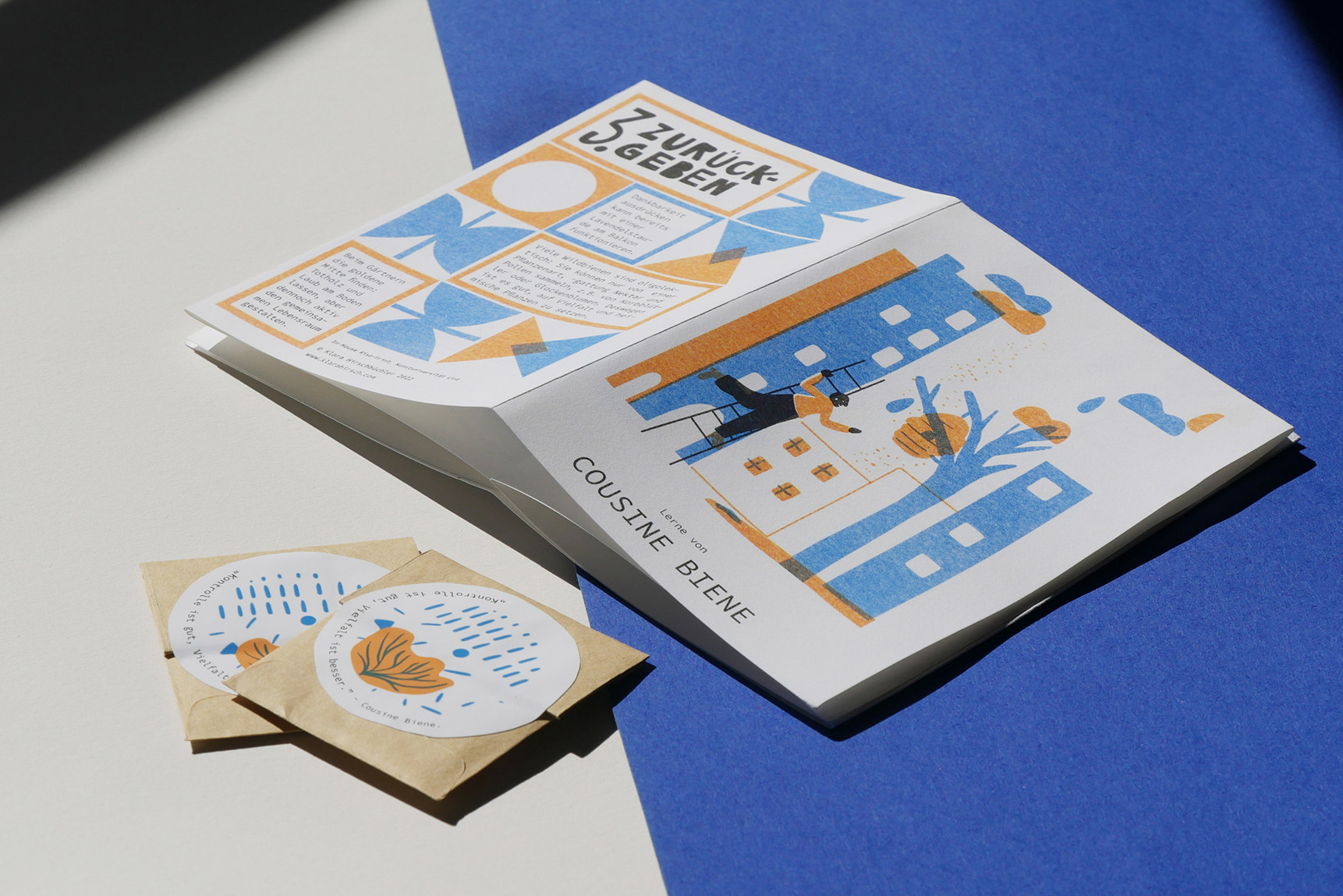
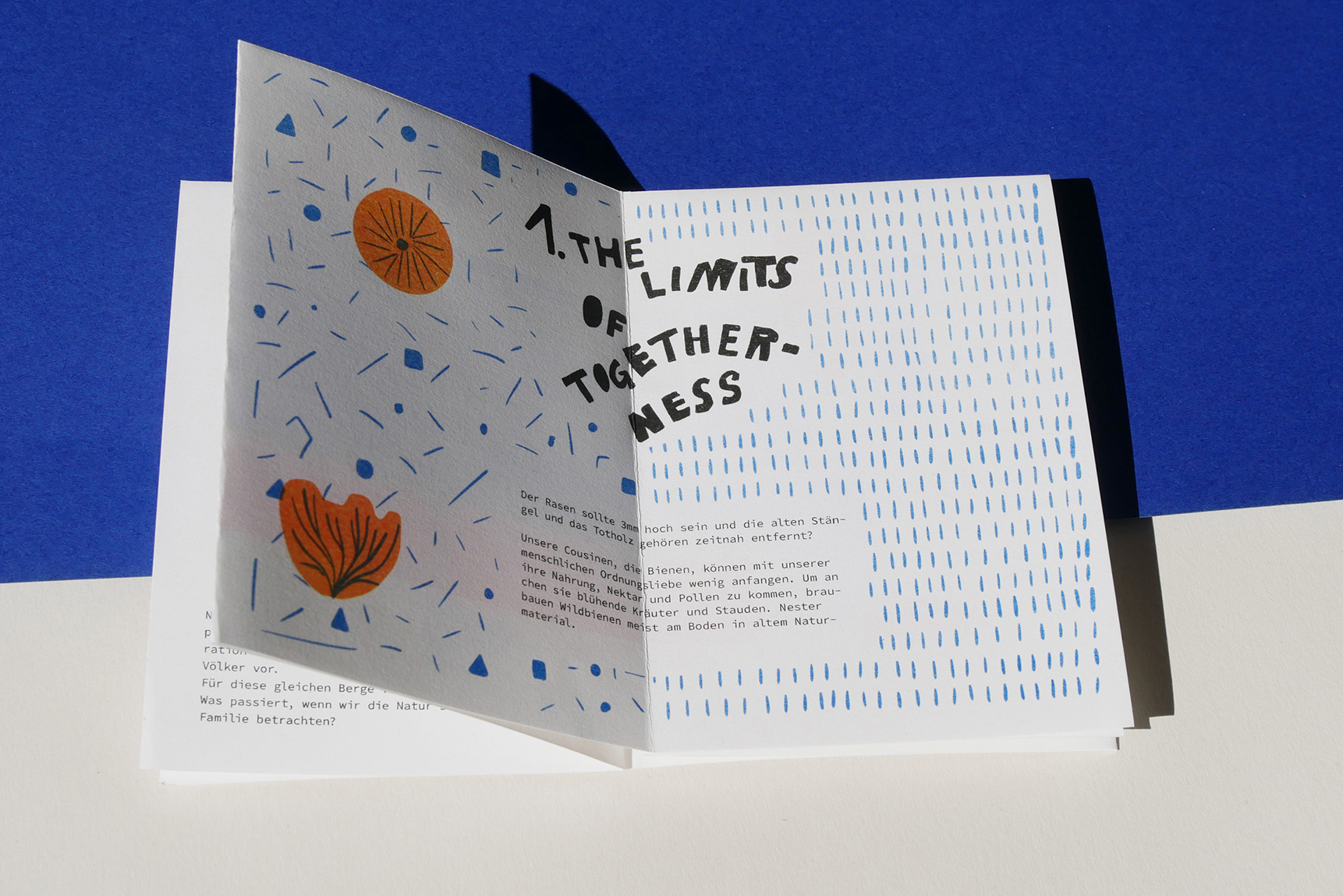
The second Zine questions our relationship with our cousin Bee.
The indigenous researcher Robin Wall Kimmerer is well-known for her unconventional study. Once, she did an experiment with the help of indigenous women: Two sweet grass fields were farmed differently. One was not touched by the harvesters at all, the other one was cultivated in an indigenous way. Counter-intuitively, the plants on the second field, which were not left by themselves, flourished the best.
This shows that the togetherness of humans and nature can be, – under certain circumstances – advantageous for both parties. The booklet deals with this topic while looking at our relationship with bees.
The second Zine questions our relationship with our “Cousin Bee”.
The indigenous researcher Robin Wall Kimmerer is well-known for her unconventional study. Once, she did an experiment with the help of indigenous women: Two sweet grass fields were farmed differently. One was not touched by the harvesters at all, the other one was cultivated in an indigenous way. Counter-intuitively, the plants on the second field, which were not left by themselves, flourished the best.
This shows that the togetherness of humans and nature can be, – under certain circumstances – advantageous for both parties. The booklet deals with this topic while looking at our relationship with bees.
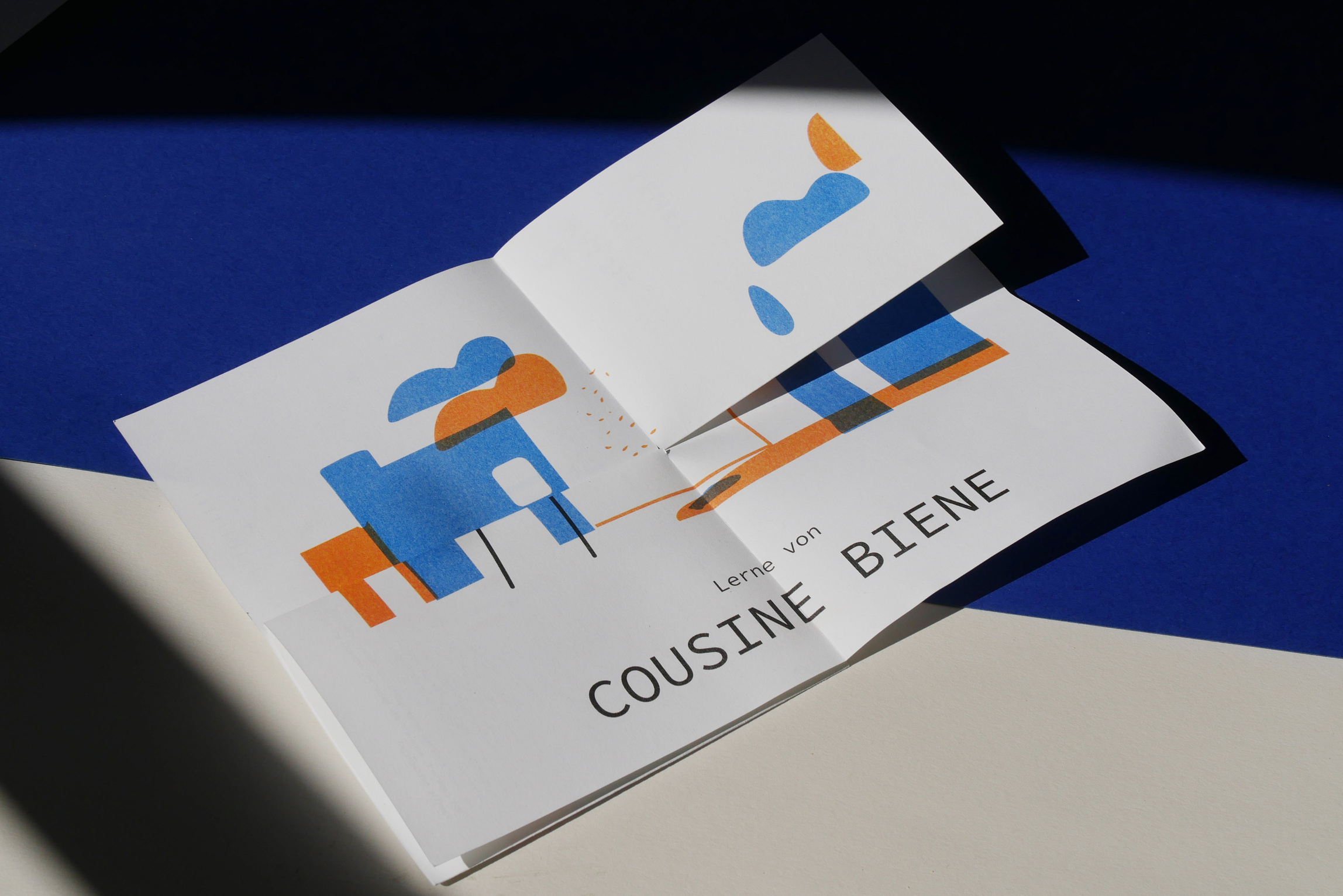
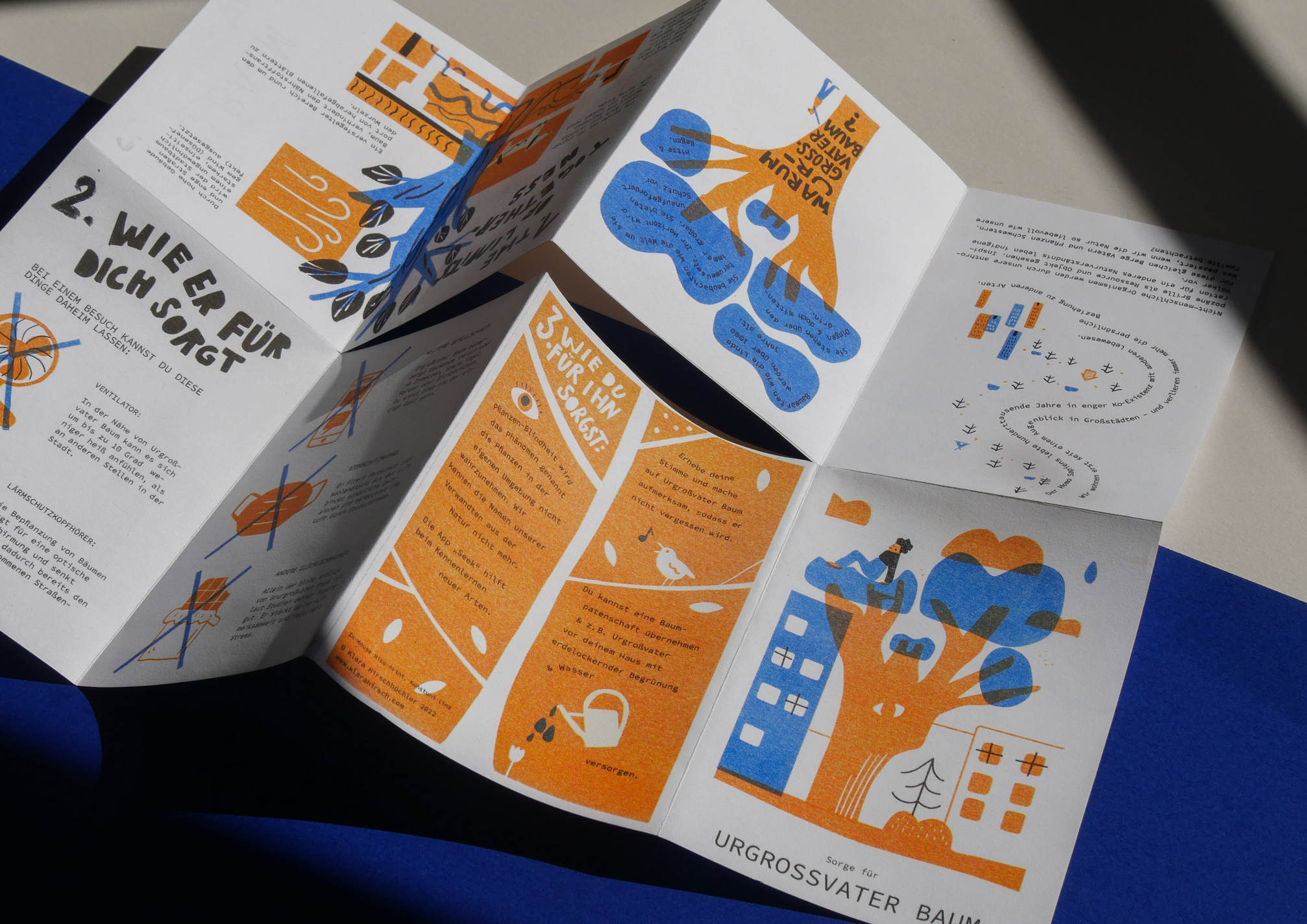
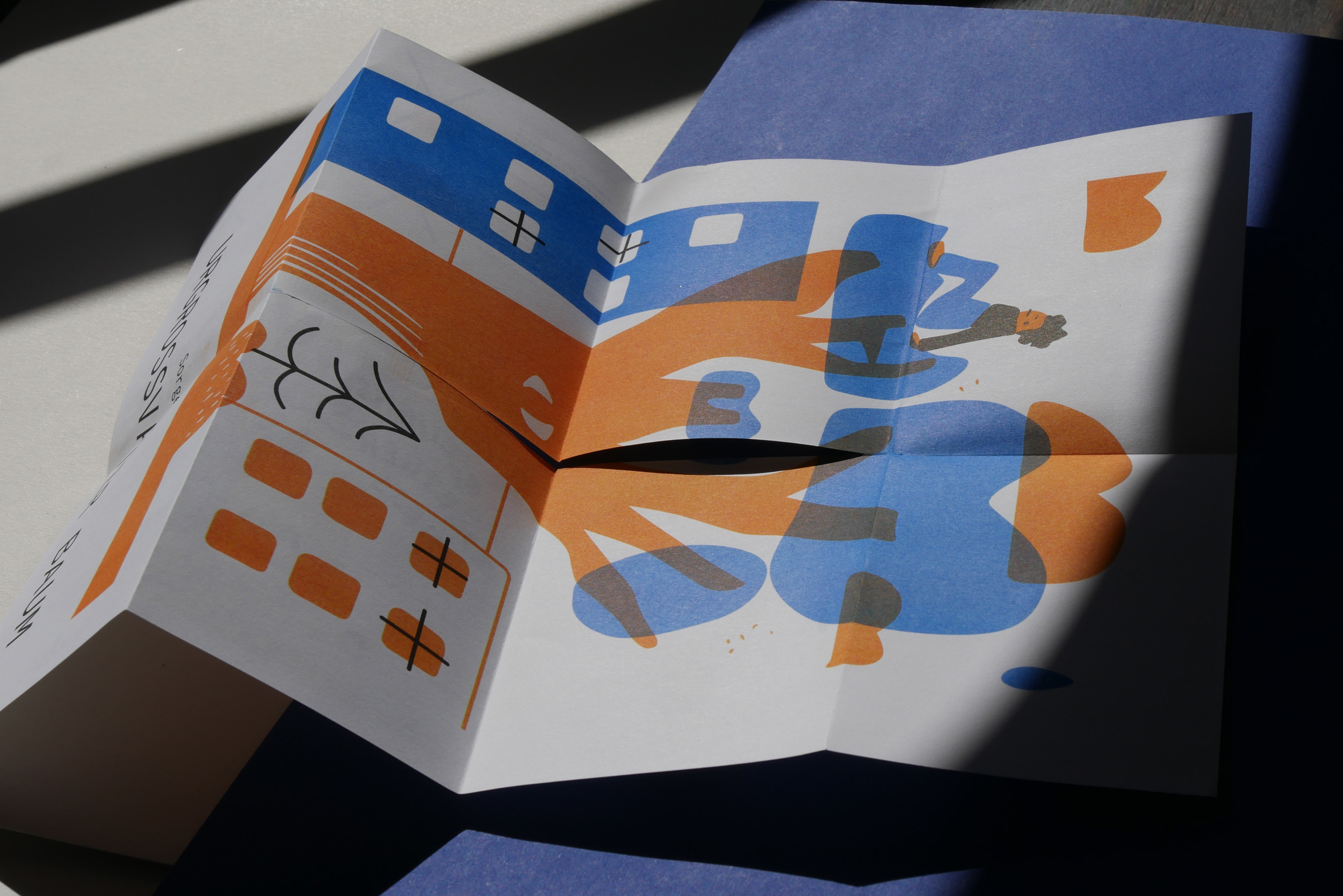
In the third Zine, the main character is the great-grandpa Tree. For indigenous tribes, it is very important to care for each other and not only take but also give back a fair amount.
Because of this, I researched, how we can improve the lives of the trees in our cities.
A first step in the right direction could be, to give them simply more attention. Our brain is trained to perceive everything plant-like as one entity. Since there is no movement and normally also no danger we have to be afraid of, it is also the last thing we notice. Experts speak in this regard of "plant blindness".
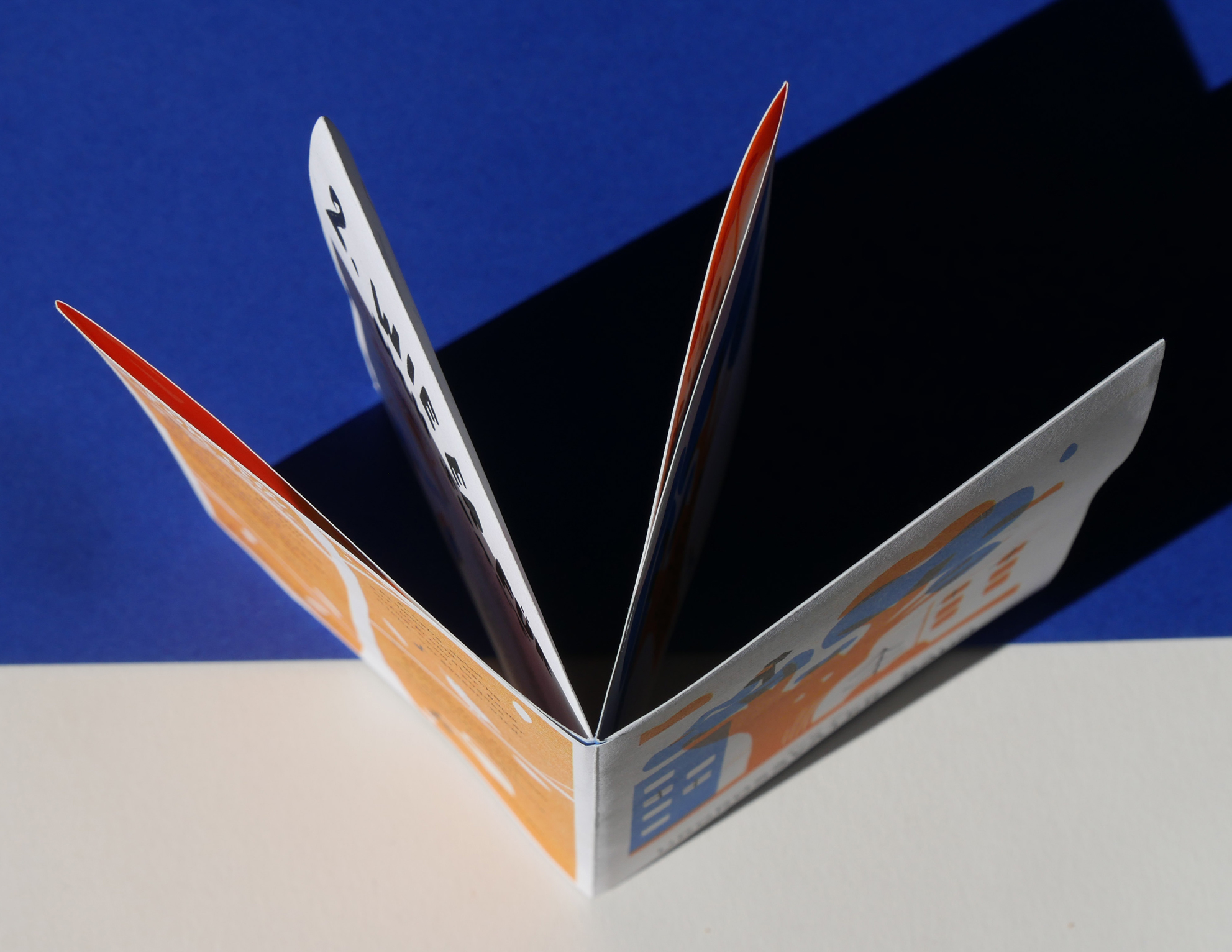
© KLARA HIRSCHBÜCHLER 2024